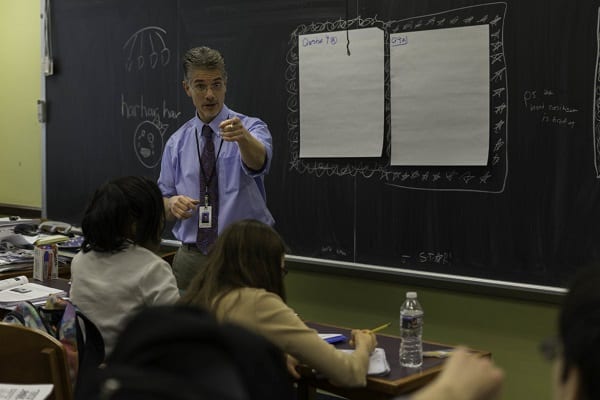The phrase is a reference to a famous essay-review penned by writer David Foster Wallace in the Gourmet magazine on the Maine Lobster Festival, where the sea creatures are cooked alive for the tastiest meals.
Wallace’s article looks at the ethical dilemma of eating the red crustaceans. But for Naragon’s ninth graders at Winchester Thurston School, “consider the lobsters” is a challenge — to look at lesson topics from both perspectives, as the boiling lobster and as the hungry tourist.
As Naragon and other Pittsburgh social studies teachers like him navigate the new and controversial president, the ability to consider lobsters — to be critical and understanding of all sides of current events — helps classrooms adapt and adjust to an intense post-election reality.
And while teaching through the long, angry campaign and the first controversial days of Donald Trump’s presidency may be difficult, many teachers think it provides students with a stronger understanding of their country’s history — as well as lessons on how to live in a democracy. And some students, to their teachers’ delight, are rising to the occasion.

John Aguiar is a U.S. government teacher at Avonworth High School, a school of 417 students about 10 miles northwest of downtown Pittsburgh. He sees his role as similar to that of a journalist — to be nonpartisan and unbiased in his classroom. And like Naragon, he’ll often play devil’s advocate to help his students “think at a higher level.”


